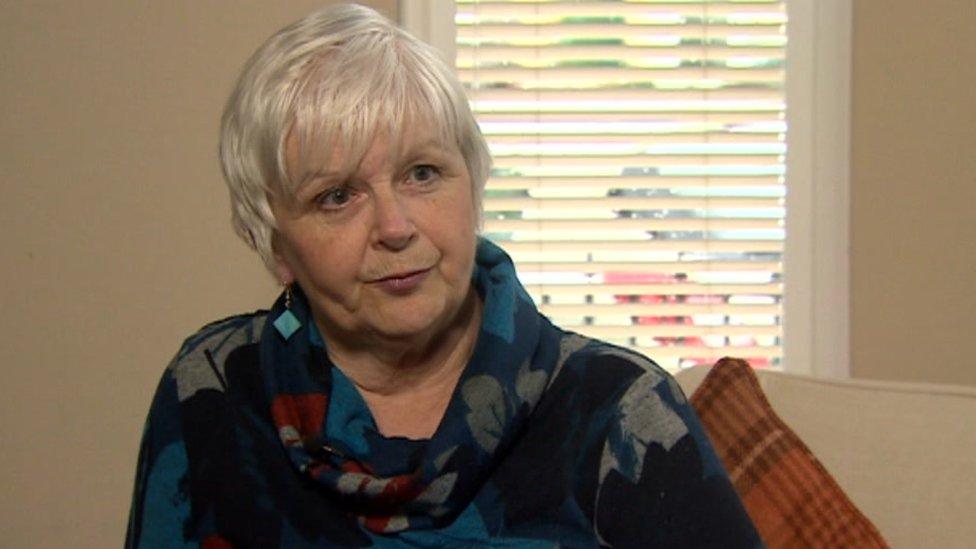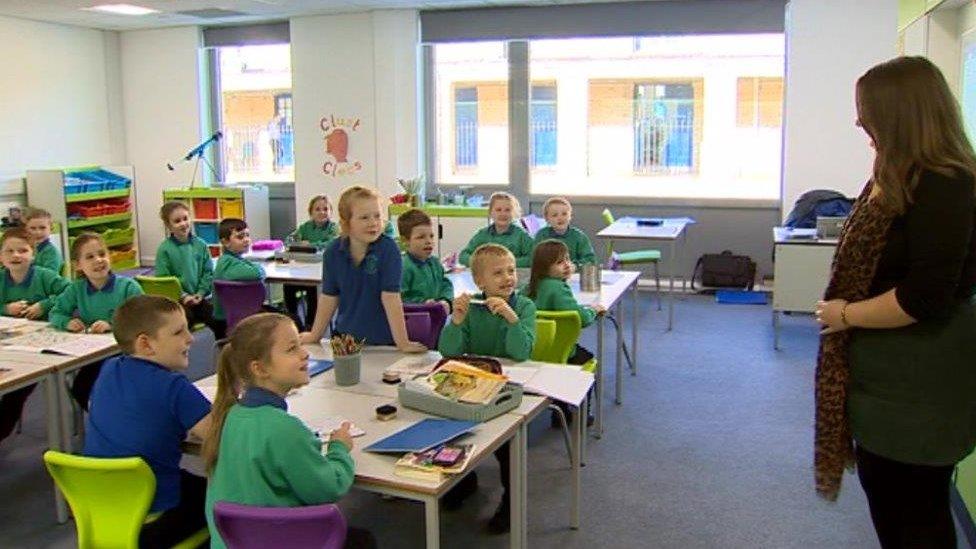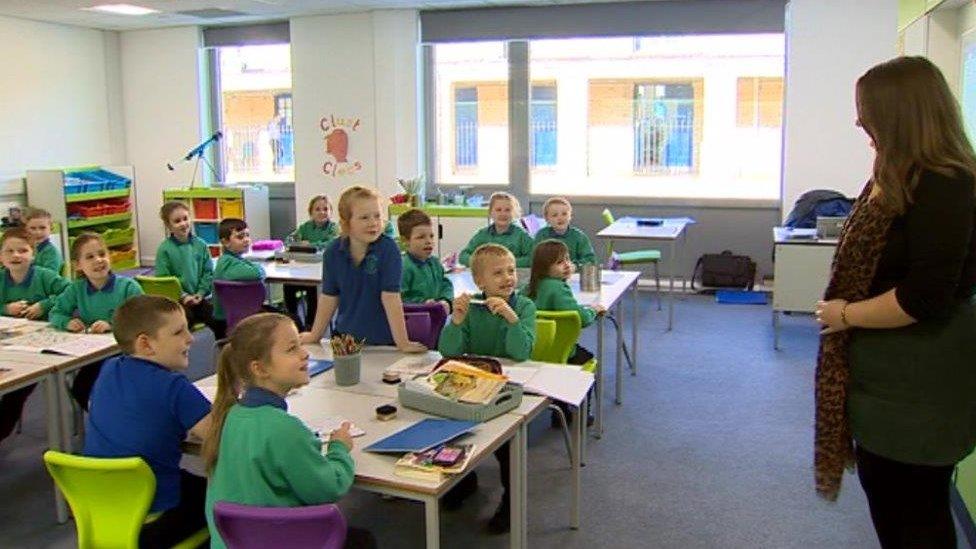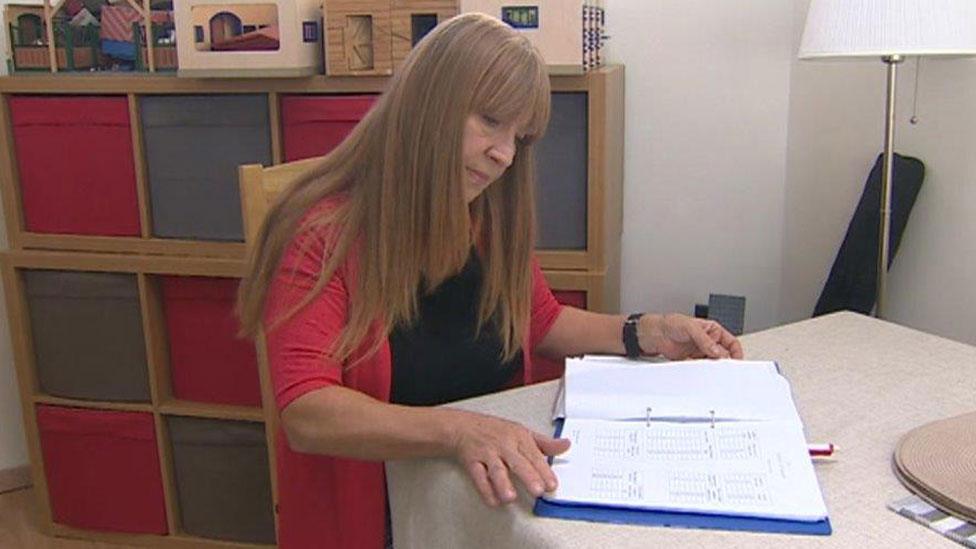Supply teachers in Wales set for pay boost
- Published

Teachers' pay in Wales was devolved to the Welsh Government in 2018
Supply teachers in Wales are to be boosted by a government-imposed minimum daily pay rate to help prevent them getting paid just £85 a day with agencies "creaming off" profits.
Campaigners say some are quitting over low pay as it emerged directors of the Welsh Government's preferred teaching supplier got nearly £1m in payouts.
The reform will make it law for firms to show how much is being paid to the teacher and how much to the agency.
Agencies say they offer good value.
More than a quarter of agency supply teachers - of which there are about 4,500 in Wales - are being paid less than £100 a day, according to a National Education Union (NEU) report last year.
"Teachers are being ripped off," AM Neil McEvoy told a Welsh Assembly petitions committee meeting, external as he claimed some of the 60 agencies in Wales "cream off" as much as £160 per teacher, per day while "teachers get paid on average £85 a day".
A petition to the assembly, submitted by former supply teacher Sheila Jones, claimed stand-in teachers were "exploited" and "leaving the profession as they cannot afford to be supply teachers" because "agencies reduce teachers' pay by 40-60%".
About £40m was spent on supply teachers in Wales in 2016-17 and the education minister has revealed a controversial and "flawed" national agency contract is being scrapped because of "legitimate concern".
The government is in talks with the National Procurement Service and unions to agree the contract and minimum fee which will be introduced in September.

Former supply teacher Sheila Jones is now a union official
Sheila Jones, who is now Wales' supply teacher representative for the National Education Union, said while agency teachers' roles offered flexibility they did not receive the same pay as colleagues employed by local authorities.
"It's unjust," she said. "There should not be a difference.
"I'm concerned that there are still going to be agencies in existence that can offer a different pay rate.
"Two people doing the same job should not be getting different pay and conditions, it's as simple as that."

Analysis from BBC Wales education correspondent Bethan Lewis:
Problems with the system for arranging supply teachers have been flagged up for many years, but a solution has been more elusive.
Councils used to have their own lists or schools had a handful of trusted contacts to draft in to cover sickness or courses.
That still happens, but agencies have now become the main players - taking care of the checks and the training so head teachers just have to make a phone call.
Agencies argue it is more cost-effective, others object to private companies profiting while schools struggle financially.
The minister's plans could address some concerns, particularly on pay, though it will not deliver the all-Wales register of supply teachers some have been calling for.

Education Minister Kirsty Williams admitted agency costs were "murky" and hoped the new deal would ensure "those working in the system are better protected".
"I acknowledge the previous contract had flaws and led to a situation I was uncomfortable with," she told the petitions committee.
"I have been concerned about the lack of transparency around fees and profits that are made by these organisations."

A £2.7m pilot project where supply teachers were employed full-time by a group of schools has showed "benefits"
She added that agency fees would be "publicly available" to help "better practices" so employers can "look very carefully how public resources that are meant to educate our children are properly deployed".
New Directions has dominated supply teacher provision in Wales but the new contract, which will start in September, will be on a local authority rather than Wales-wide basis.
The Cardiff-based firm said it has operated an "open and transparent rates matrix" with government agreement and "schools decide what rates they are willing to pay".
"Over the term of the framework we have saved schools in excess of £15m, in turn providing relevant continuing professional development opportunities to over 4,000 education workers," said Gary Williams, the firm's group director.
"We welcome the changes for the new framework and see them as a positive for Wales."
Schools have also been told they do not have to employ teachers through agencies and could hire them directly - so avoiding fees altogether.
And the Welsh Government has sponsored a £2.7m pilot project - involving 52 newly-qualified staff - where supply teachers are employed full-time and fill in for absent teachers across 106 schools in 15 counties.
Ms Williams said early signs show there were "better pupil outcomes and behaviour benefits" as well as "wider benefits for school improvement".
Unions have "begrudgingly welcomed" the government's reform as they want supply staff to be paid depending on experience and not "get them on the cheap".
"It is a step in the right direction," said NEU Welsh secretary David Evans. "But we still have some way to go."
- Published20 November 2018

- Published17 November 2018

- Published3 June 2018

- Published20 March 2018

- Published12 October 2017

- Published24 October 2017
